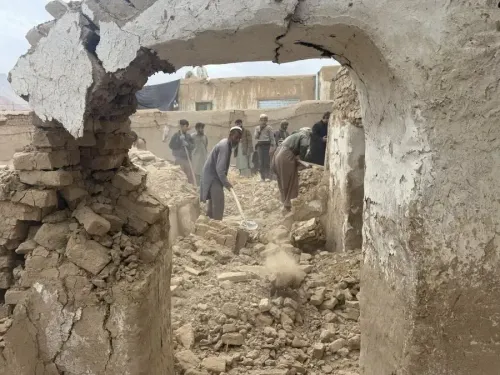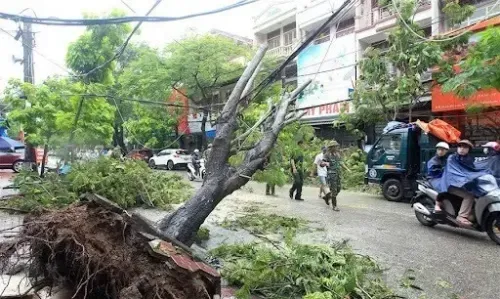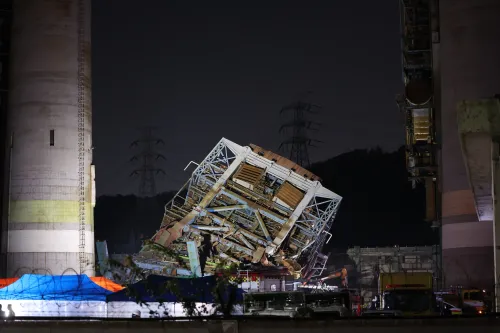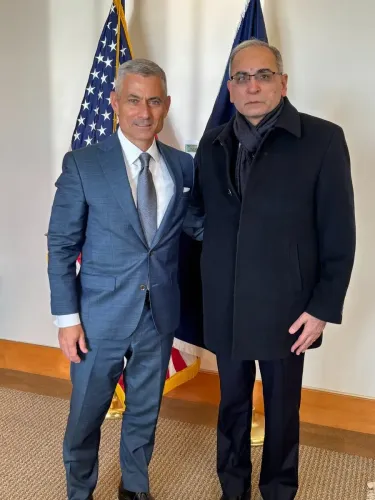Should European Leaders Demand an End to Israeli Attacks in Gaza Amid Humanitarian Crisis?
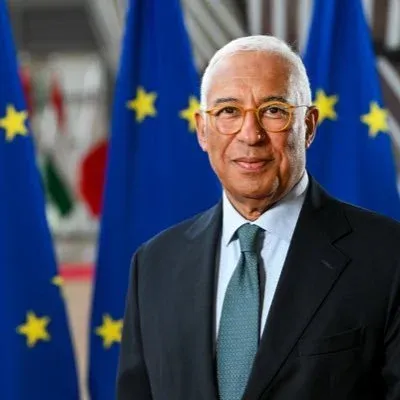
Synopsis
Key Takeaways
- Growing International Concern: European leaders are increasingly vocal about the humanitarian crisis in Gaza.
- Calls for Policy Reversal: There is a strong demand for Israel to reverse its military policies and allow humanitarian aid.
- Urgent Humanitarian Intervention: Immediate action is needed to address the dire situation in the region.
- Support for Two-State Solution: European nations reaffirm their commitment to a peaceful resolution respecting Palestinian rights.
- Escalating Casualties: The ongoing conflict has led to a significant loss of life and injuries in Gaza.
Brussels, May 18 (NationPress) As Israel escalates its military actions in the Gaza Strip, numerous European leaders are expressing profound concern regarding the dire humanitarian crisis. They are urging Israel to "reverse its current policy" and highlighting the necessity for immediate humanitarian intervention.
On Saturday, European Council President Antonio Costa took to social media to voice his shock at the escalating situation in Gaza, demanding an end to the violence. He called on the Israeli government to lift the blockade and guarantee safe, swift, and unhindered access to humanitarian aid, as reported by Xinhua news agency.
"What is unfolding in Gaza is a humanitarian catastrophe. An entire population is facing overwhelming, disproportionate military force. International law is being egregiously violated," Costa emphasized. He underscored the need for an immediate and sustained ceasefire and the unconditional release of all hostages.
Norway, Iceland, Ireland, Luxembourg, Malta, Slovenia, and Spain have echoed these sentiments in a joint statement released on Friday. "We will not remain silent in the face of the man-made humanitarian disaster unfolding in Gaza," they declared.
With over 50,000 lives lost, these nations cautioned that countless more could succumb to starvation in the upcoming days without prompt intervention. They called on Israel to immediately reverse its current policy, completely lift the blockade, and allow for rapid, unimpeded humanitarian access throughout Gaza.
Additionally, they reaffirmed their dedication to a two-state solution and the Palestinian people's right to self-determination, pledging to collaborate within the United Nations framework and with regional partners to pursue a peaceful and sustainable resolution.
At the 34th Arab League Summit in Baghdad on Saturday, Spanish Prime Minister Pedro Sanchez urged for international pressure to halt what he referred to as Israel's "massacre in Gaza." He announced Madrid's intention to propose a UN resolution requesting a ruling from the world court on aid access to Gaza.
World leaders must "intensify our pressure on Israel to stop the massacre in Gaza, especially through international law channels," Sanchez stated, reiterating that implementing the two-state solution is the only viable path to peace.
Italian Foreign Minister Antonio Tajani also condemned Israel's actions. On Saturday, he reiterated Italy's commitment to a ceasefire and a two-state solution, asserting, "It is time to achieve a ceasefire, as the civilian population is exhausted and can no longer withstand continuous attacks."
Last week, Dutch Foreign Minister Caspar Veldkamp alleged that Israeli forces had gravely violated the EU-Israel Association Agreement of 2000. He urged the EU to initiate an investigation into Israel's adherence to the agreement amid a broader review of EU-Israel relations.
EU foreign ministers are scheduled to convene on May 20 to deliberate on the Dutch proposal to reassess the agreement in light of Israel's actions in Gaza, according to EU foreign policy chief Kaja Kallas.
The Israeli military announced on Friday that it had intensified operations in Gaza, executing a series of airstrikes and deploying additional ground forces to establish operational control in parts of the enclave.
Since Israel recommenced its intensified military campaign on March 18, at least 3,131 Palestinians have been reported dead and 8,632 injured, bringing the total death toll in Gaza since the conflict commenced in October 2023 to 53,272, with 120,673 individuals injured, as per health authorities in Gaza.
According to Tom Fletcher, the UN Under-Secretary-General for Humanitarian Affairs and Emergency Relief Coordinator, who also called for "rapid, safe, unimpeded aid delivery for civilians in need" in Gaza, approximately 160,000 pallets of humanitarian goods are ready for distribution. However, alongside the military escalation, Israel has obstructed the entry of humanitarian assistance into the enclave.

